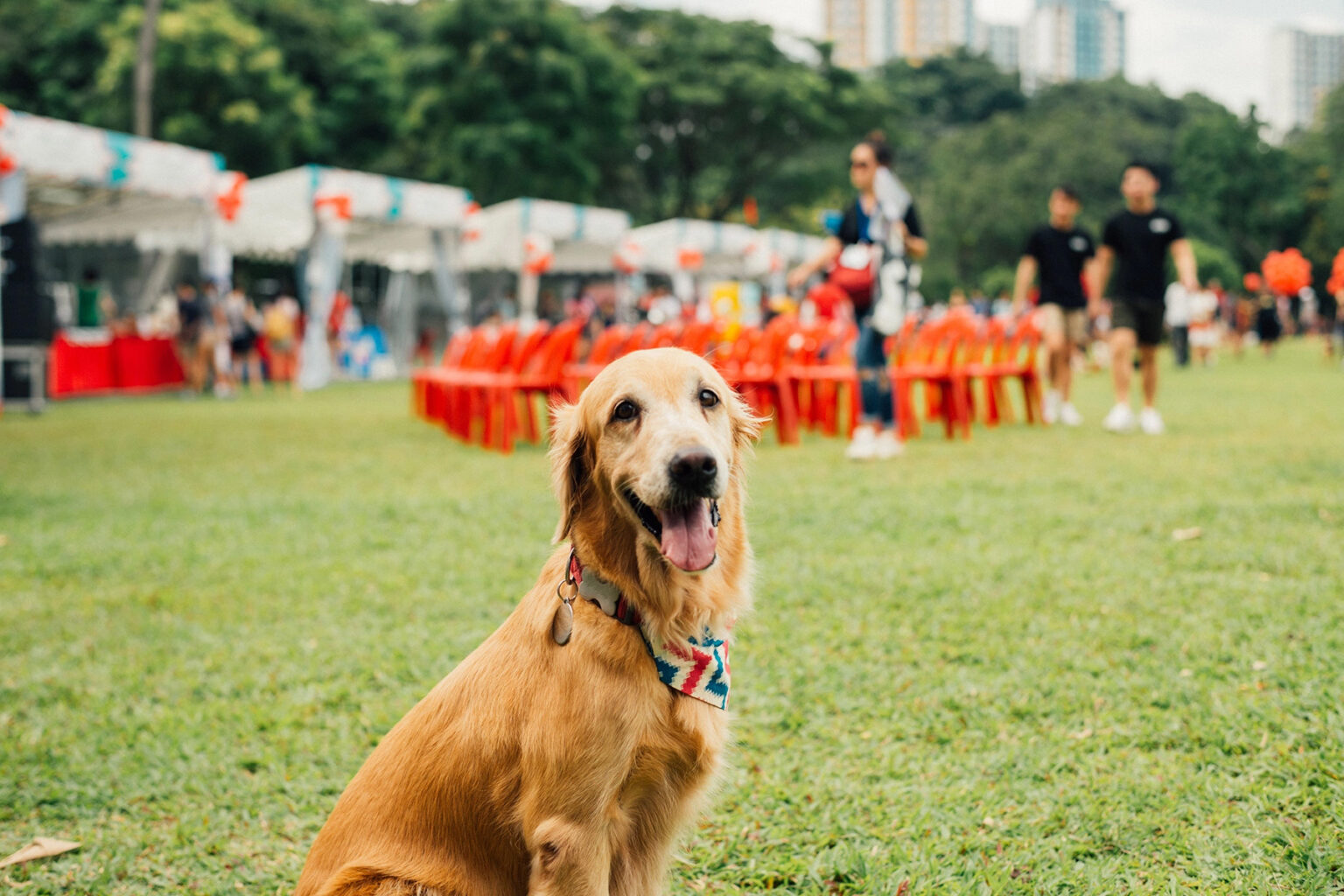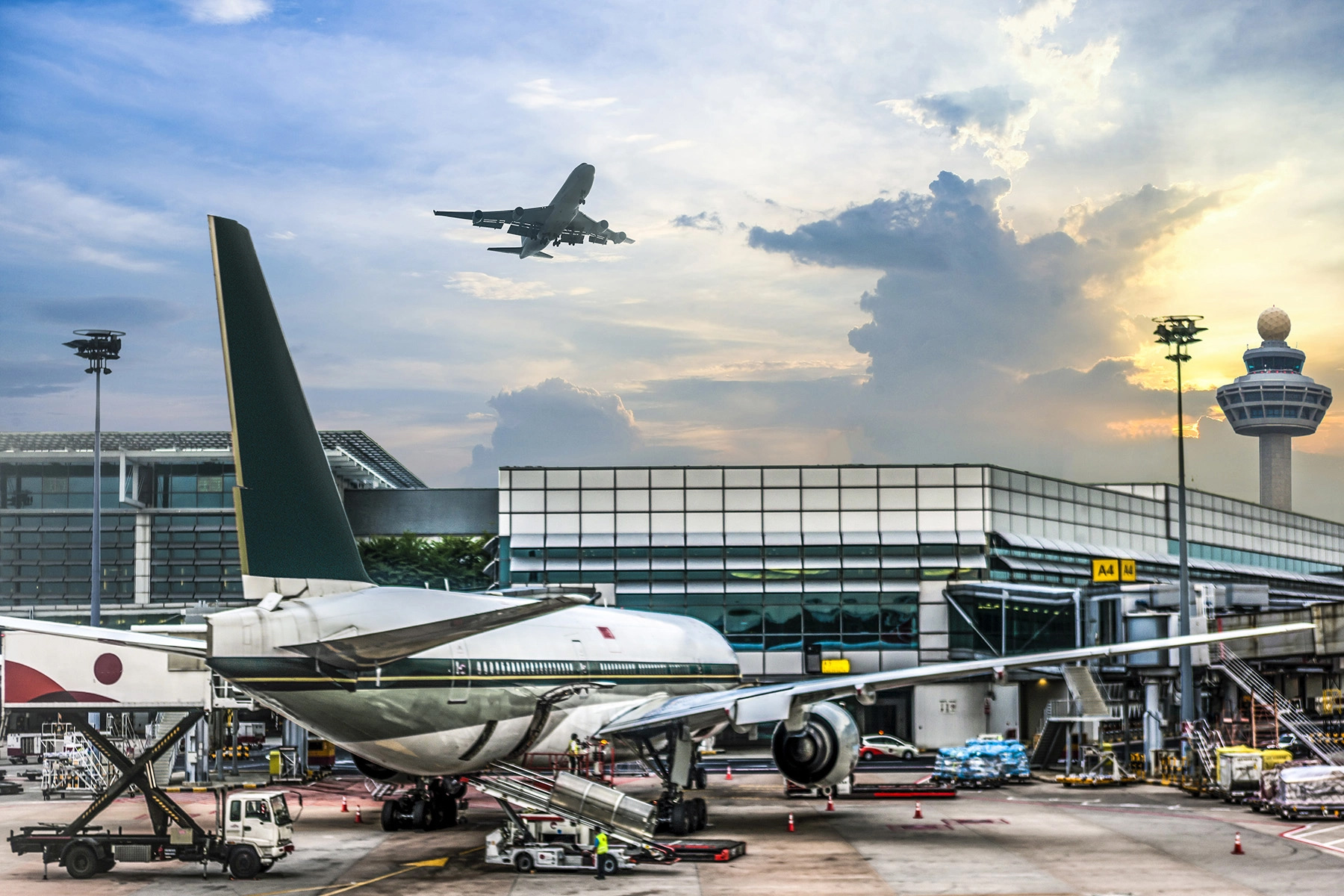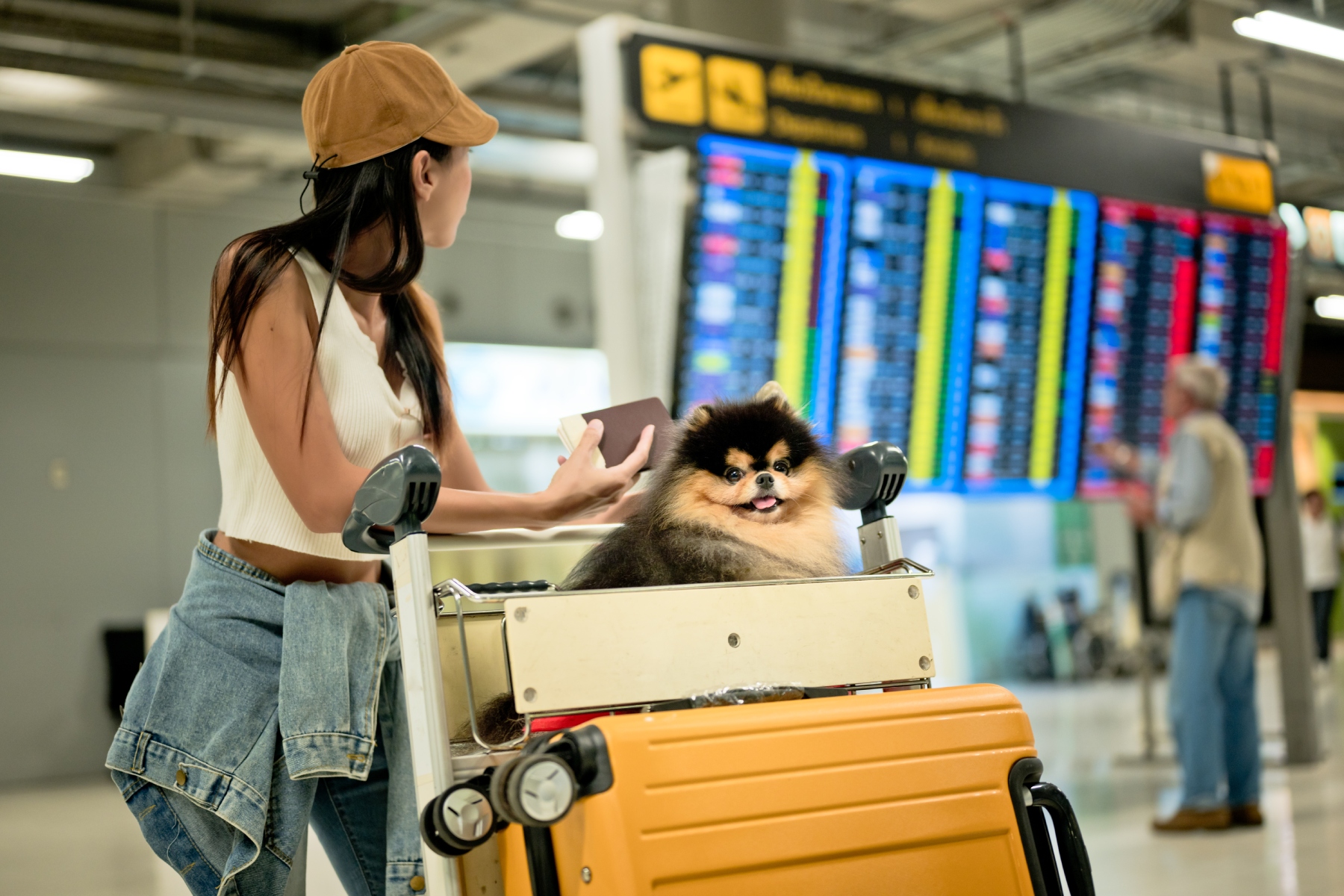If you’re planning a removal to Singapore, it might take a while to get your head around all the differing rules, regulations, and conventions. This is especially important when it comes to bringing a pet with you.
Fortunately for those moving to Singapore, many people have pets in the country, and expats may bring certain animals with them. It’s also possible for you to adopt a new furry friend after arriving. Read on to find out about the different requirements, including:
- Is Singapore pet-friendly?
- How do I adopt a pet in Singapore?
- Can you bring or import your pets to Singapore?
- How do you register pets in Singapore?
- Do you need a pet passport for Singapore?
- How can you arrange pet insurance in Singapore?
- Pet healthcare in Singapore
- Pet shops in Singapore
- Which pet services are available in Singapore?
- How do you find and report lost pets?
- How much does it cost to have a pet in Singapore?
- Selling a pet in Singapore
- Re-homing pets
- Useful resources
Is Singapore pet-friendly?
If you’re looking to bring non-human family members to Singapore, the good news is that it’s a pretty pet-friendly country. Although things may operate slightly differently from your home country, Singapore allows people to own dogs, cats, and other common creatures. In addition, Singapore ranks 21st out of 51 nations on the 2022 Dog-Friendly Country Index.
According to statistics from 2016, there are around 824,600 pets in Singapore. The most popular ones include:
- Dogs
- Cats
- Rabbits
- Hamsters
- Terrapins
- Fish
- Birds

The Animal and Veterinary Service (AVS) has published a list of pets allowed for sale in Singapore and those which are illegal. Prohibited creatures include wildlife and exotic pets, such as:
- Hedgehogs
- Iguanas
- Tarantulas
- Scorpions
- Snakes
If you own a pet in Singapore, you must familiarize yourself with the country’s Code of Animal Welfare. Several organizations that deal with animal welfare issues in the country, including the AVS and the Society for Prevention of Cruelty to Animals (SPCA).
Pet laws in Singapore
Singapore has laws regarding the licensing, leashing, and muzzling of dogs. These include:
- All dogs must have a license.
- Only one dog of an approved breed may live in a Housing Development Board (HDB) flat.
- Owners must keep all dogs on leashes when out in public areas.
- Some species, including Bull Terriers, German Shepherds, and Rottweilers, must wear a muzzle.
You must also clean up after your dog in public.
Pets other than guide dogs are not allowed on public transport in Singapore. In addition, cats are not permitted as pets in an HDB flat.
Failure to comply with pet laws can result in a hefty fine. Under Singapore’s Wildlife Act, you could be fined up to SG$50,000 and jailed for up to two years if you are caught with a banned creature as a pet.
How do I adopt a pet in Singapore?
Your two main options for pet adoption in Singapore are buying one from a licensed retailer or getting one from an animal shelter or similar.
Other than the laws mentioned above, there are no additional requirements for pet ownership in Singapore. However, you must adhere to the Code of Animal Welfare (for pet owners) when looking after your pet.
Buying pets
You must be at least 16 to buy a pet from a retailer in Singapore. However, make sure you buy from a registered store or breeder. The AVS has a list of licensed stores across the country. Unlike in many countries, you can buy puppies and kittens from high street stores in Singapore.
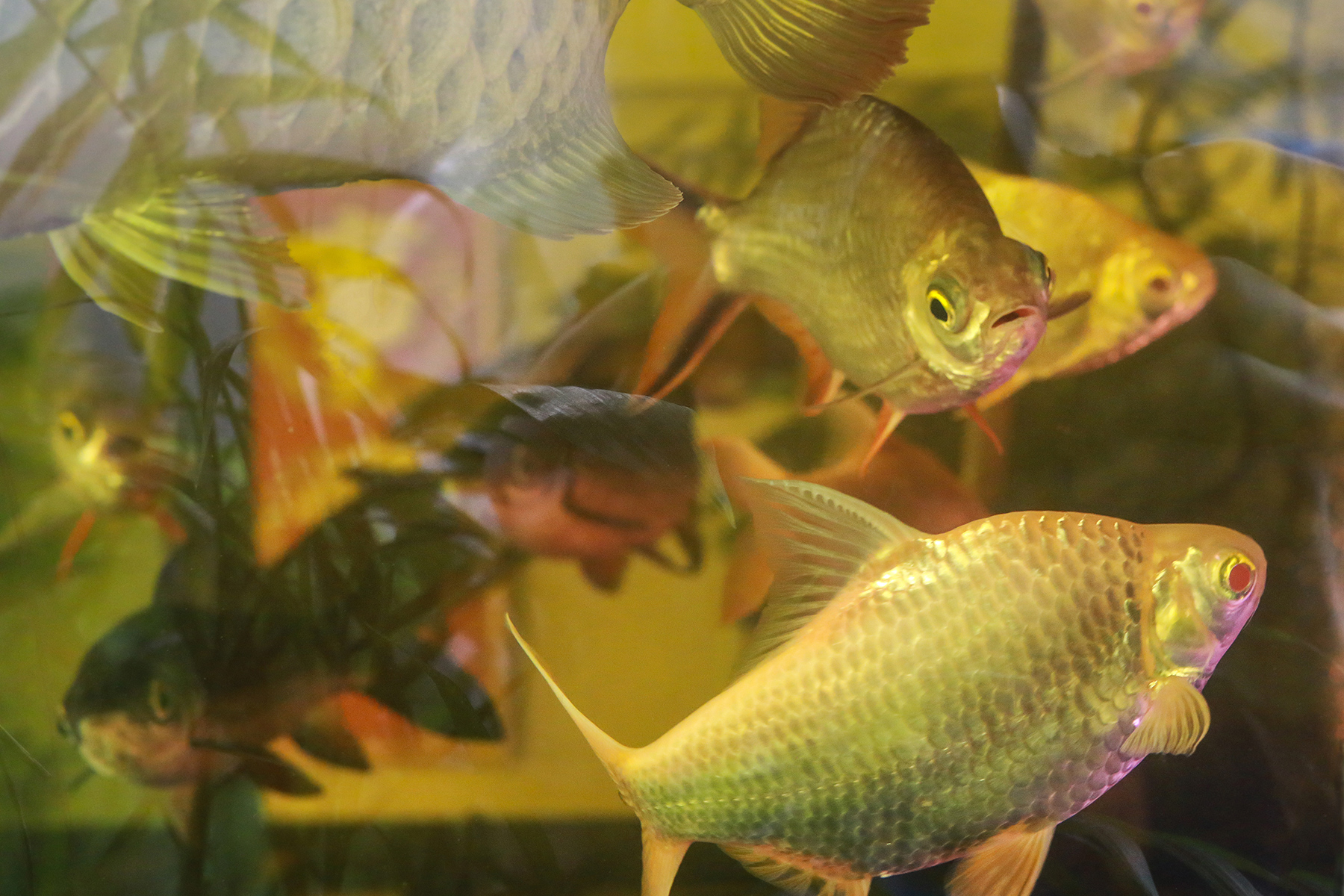
You can also buy puppies and kittens from breeders. Find information on licensed breeders from:
- Singapore Kennel Club (dogs)
- Feline Fanciers Society of Singapore (cats)
When buying a new pet from a retailer in Singapore, you will need to fill out a pet purchase declaration form before the completion of sale. For dogs, you will also need a licensing form to transfer ownership of the dog to you.
The cost of pets from retailers varies greatly according to pet type, breed, and condition. Expect to pay in the region of:
- SG$300–3,000 for a dog
- SG$100–1,500 for a cat
- SG$10–500 for a smaller pet such as a rabbit, rodent, bird, or reptile
However, certain rare breeds may be more expensive.
You can buy pets in Singapore secondhand – for example, if you see an advert in a shop window or online. However, bear in mind that you will have less information about the animal’s condition. Also, remember that you will need to transfer the ownership license to your address if you purchase a dog.
The SPCA advises against buying dogs from puppy mills, which they refer to as “large-scale operations with large numbers of dogs kept for breeding.”
Pet rescue services
Adopting a pet is an ethical option preferred by many animal lovers. It’s cheaper, the money goes towards animal welfare, and it offers rescued animals the chance for a new and loving home.
There are a number of welfare organizations and rescue services that provide pet adoption services in Singapore. These organizations usually ensure that all creatures have health checks, vaccinations, microchips, and (in the case of dogs) licenses. Processes vary but typically involve an interview which screens you for suitability as an owner. This may also include a home visit to assess whether your premises are fit for a pet. You will typically have to provide:
- ID, for example, your passport
- Proof of address, for example, a rental contract or utility bill
Places in Singapore where you can adopt a pet include:
- Action for Singapore Dogs
- Animal Lovers League
- Cat Welfare Society
- Causes For Animals
- House Rabbit Society Singapore
- Lost Paws
- Save Our Street Dogs (SOSD)
- SPCA
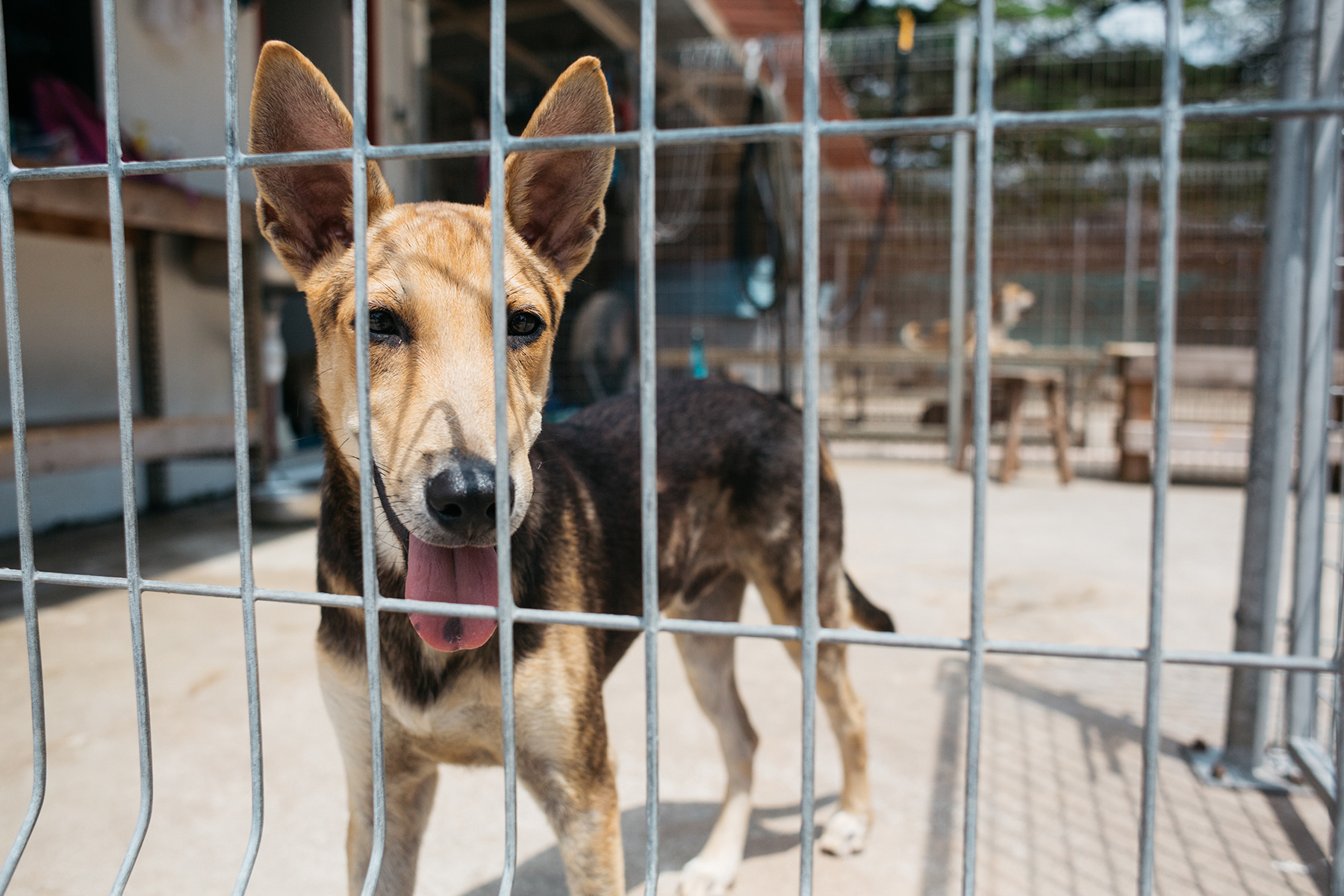
Adopting a Singapore pet usually costs a small fee, but it’s cheaper than buying from a retailer. Moreover, the organization will use the funds to cover animal welfare costs. Expect to pay around:
- SG$70–350 for a dog
- SG$0–200 for a cat
- SG$0–100 for a small pet
See the SPCA website for example costs.
Fostering a pet
Some animal welfare organizations also offer short-term pet fostering, where you can look after a furry friend until it is permanently re-homed. This is a great way to find out if pet ownership is for you before adopting.
Organizations like SPCA and SOSD offer fostering opportunities for anything from a couple of weeks to a few years. The requirements and processes are largely the same as for adopting a pet. During the fostering period, the welfare organization normally pays medical bills and may help with other pet maintenance costs.
Can you bring or import your pets to Singapore?
If you already own an animal you’d like to bring with you in your relocation to Singapore, the good news is that you may import most standard pets. However, there are a few breeds that you may not bring in. These include:
- Dogs such as Pit Bulls, Neopolitan Mastiffs, and Fila Basilieros – the AVS provides a list of prohibited breeds
- First to fourth-generation Bengal or Savannah cats
- Birds from countries where there is a risk of avian flu
- Most reptiles and amphibians
You won’t need a pet passport or visa, but you must fulfill certain requirements. These are:
- ISO-standard microchip for all dogs and cats
- Rabies vaccinations and blood tests (dogs and cats from most countries)
- Other vaccinations
- Dog license for dogs, which you will need before getting your import license
- Import license, which costs around SG$50 and lasts for 30 days
- Veterinary health certificate issued after health inspection and parasite treatment
Singapore is a rabies-free country and protects against its import via animals. Countries are categorized from A–D depending on their rabies risk. Pets from Category A countries don’t need to meet rabies vaccination or testing requirements.
Pets need to be vaccinated against high-risk diseases before entering Singapore. Other than rabies, mandatory vaccinations for imported pets in Singapore include:
- Canine distemper, hepatitis, and parvovirus infection (dogs)
- Feline flu and enteritis (cats)
If you wish to import a creature classified as an endangered species, you should check the requirements with the Convention on International Trade in Endangered Species (CITES).
You can read more about import requirements and processes on the AVS website and check your situation using their pet import calculator.
Traveling with pets to Singapore
You can travel to Singapore with pets by air, sea, or land. The main entry points are Singapore Changi Airport and the Tuas Checkpoint from Malaysia.
Most people relocating to Singapore with pets come via airplane. There are many pet-friendly aviation companies that you can travel with, and Singapore Airlines also allows you to bring your furry friends along. You can also choose to use a pet relocation company that will handle the entire process. Companies providing this service to Singapore include:
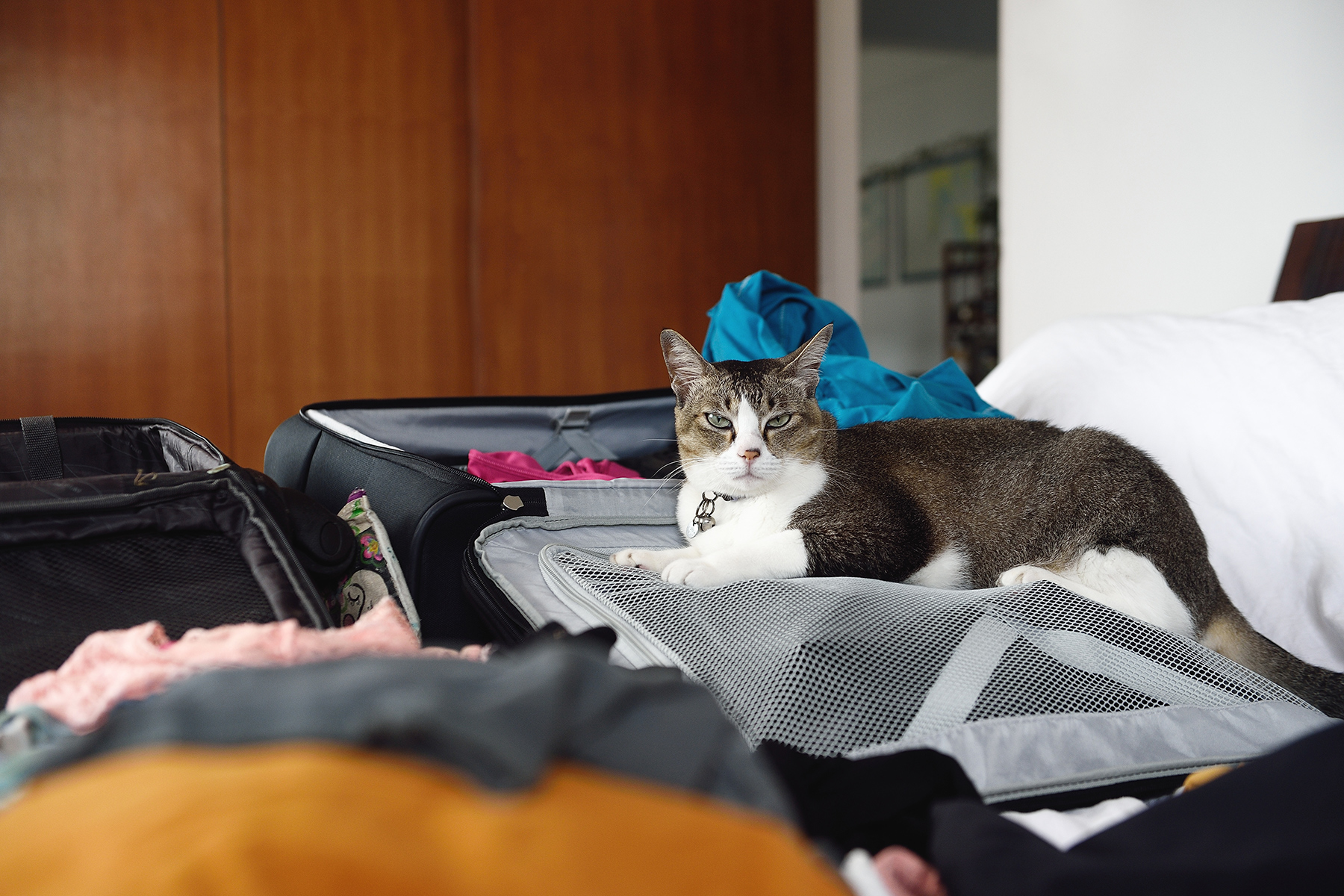
You must purchase a suitable travel container for your pet ahead of the journey. The International Air Transport Association (IATA) has information on container regulations. You must label your container clearly and provide food and water for the trip. The Sherpa, Bergan, and SturdiBag pet carriers are all airline compliant as long as your pet fits comfortably.
Pet arrivals in Singapore
Upon arriving in Singapore, pets must undergo a clearance procedure, which varies depending on their point of entry to the country. Generally, this involves a health inspection, which you must book at least five days ahead of arrival to avoid fees.
Most pets in Singapore will have to undergo a quarantine period. You will need to reserve your space through the quarantine management system before traveling. Quarantine periods are:
- 10–30 days for cats and dogs from Category C countries (PDF)
- 30 days for cats and dogs from Category D countries (PDF)
- 14 days for most pets other than cats and dogs
Dogs and cats from Category A (PDF) or Category B (PDF) nations do not need to quarantine.
How do you register pets in Singapore?
Dogs are the only pets in Singapore that must be registered and licensed. This applies to all dogs in the country, whether bought, adopted, or imported.
You can apply for or renew a dog license online in Singapore via the Pet Animal Licensing System (PALS) portal. You can get one that lasts for one to three years or a permanent one if your dog has been sterilized. Costs are:
| Type of license | Price if neutered | Price if not neutered |
|---|---|---|
| One year | SG$15 (also for puppies under five months) | SG$90 |
| Two years | SG$25 | SG$165 |
| Three years | – | SG$230 |
| Permanent | SG$35 | – |
You should inform PALS anytime there is a change of dog ownership or change of address for the dog owner.
Do you need a pet passport for Singapore?
You do not need a pet passport to enter or leave Singapore with an animal.
However, there are regulations when exporting a pet, which you can read about on the AVS website. Processes and regulations will largely depend on your destination. If you need a pet passport or would like to purchase one, you can buy them from online retailers such as the Pet Travel Store. The current price for a Singapore pet passport is $24.50.
How can you arrange pet insurance in Singapore?
Pet insurance in Singapore is only mandatory for owners of specified breeds of dogs that could be considered dangerous. If you own one of these, you must insure it to cover at least SG$100,000 of damages or injuries to third parties and show proof of insurance to PALS.
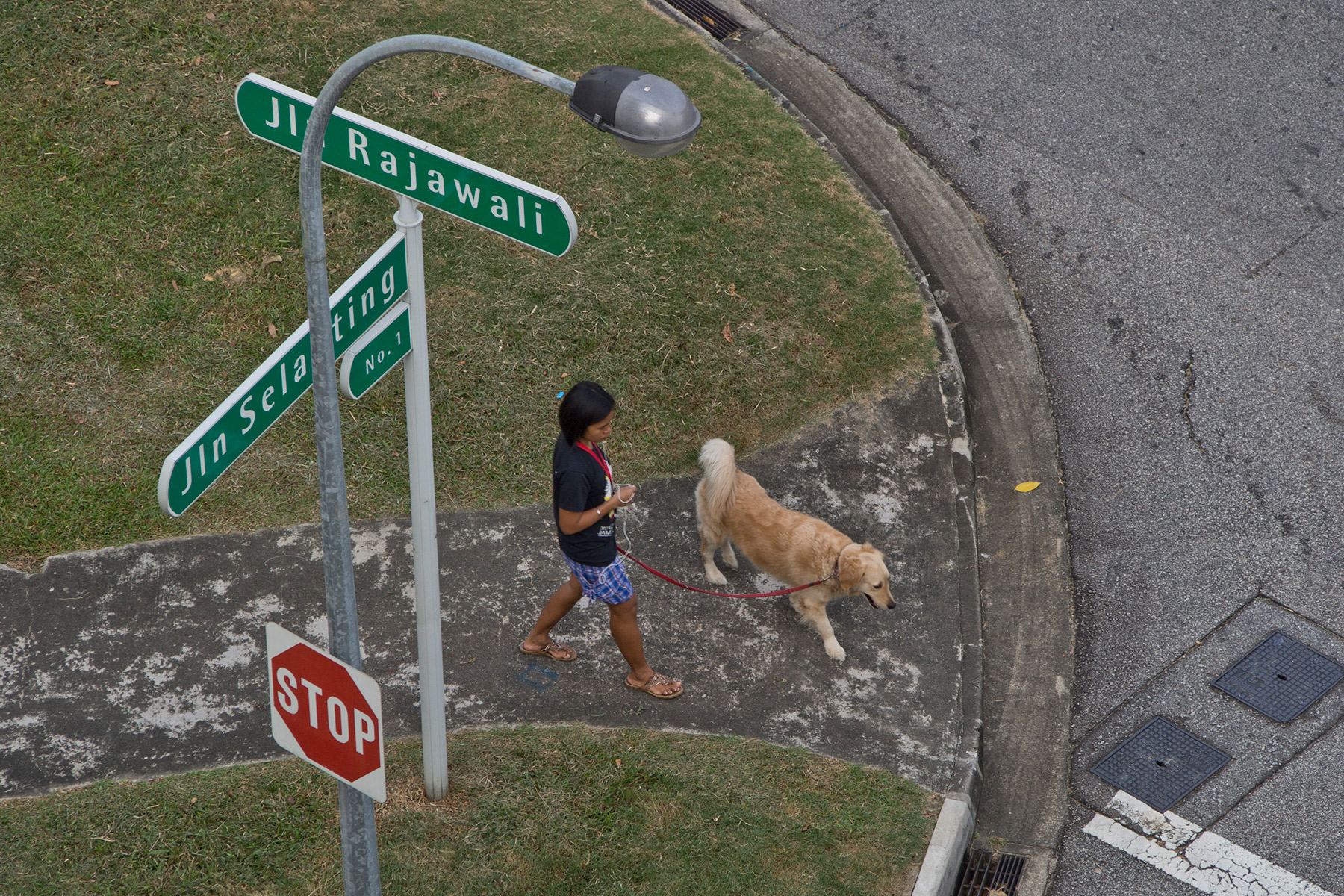
Although pet insurance is not mandatory in other cases, it’s worth thinking about to cover potential costs such as vet bills or damages inflicted by your pets. Insurance premiums vary depending on the pet and the coverage level but tend to be SG$75–750 a year. Companies providing pet insurance in Singapore include:
You can compare pet insurance in Singapore on websites such as SingSaver, which also offers a more detailed overview of the best plans.
Pet healthcare in Singapore
Veterinary services
If your Singapore pet has a medical problem or sustains an injury, you can contact a vet. Singapore’s vets treat all kinds of creatures, providing services such as:
- Health checks
- Vaccinations
- Advice on matters such as diet and training
- Medical treatment and surgery
- Dental treatment
- Euthanasia, if the animal is extremely unwell
Some vets also provide round-the-clock emergency treatment. Prices vary, but you can cover most costs with a good pet insurance policy. Expect to pay around SG$25–50 for a basic consultation or health check and around SG$150 for emergency treatment. MoneySmart provides a comparison of 19 different Singapore vet fees.
The Singapore Veterinary Association (SVA) is the industry body for vets in the country. You can find a list of registered vet centers and licensed specialist vets on their website.
Vaccinations
It is important to keep your pet vaccinated against dangerous diseases and illnesses. This will help keep your furry friend healthy and lower the risk of outbreaks in Singapore.
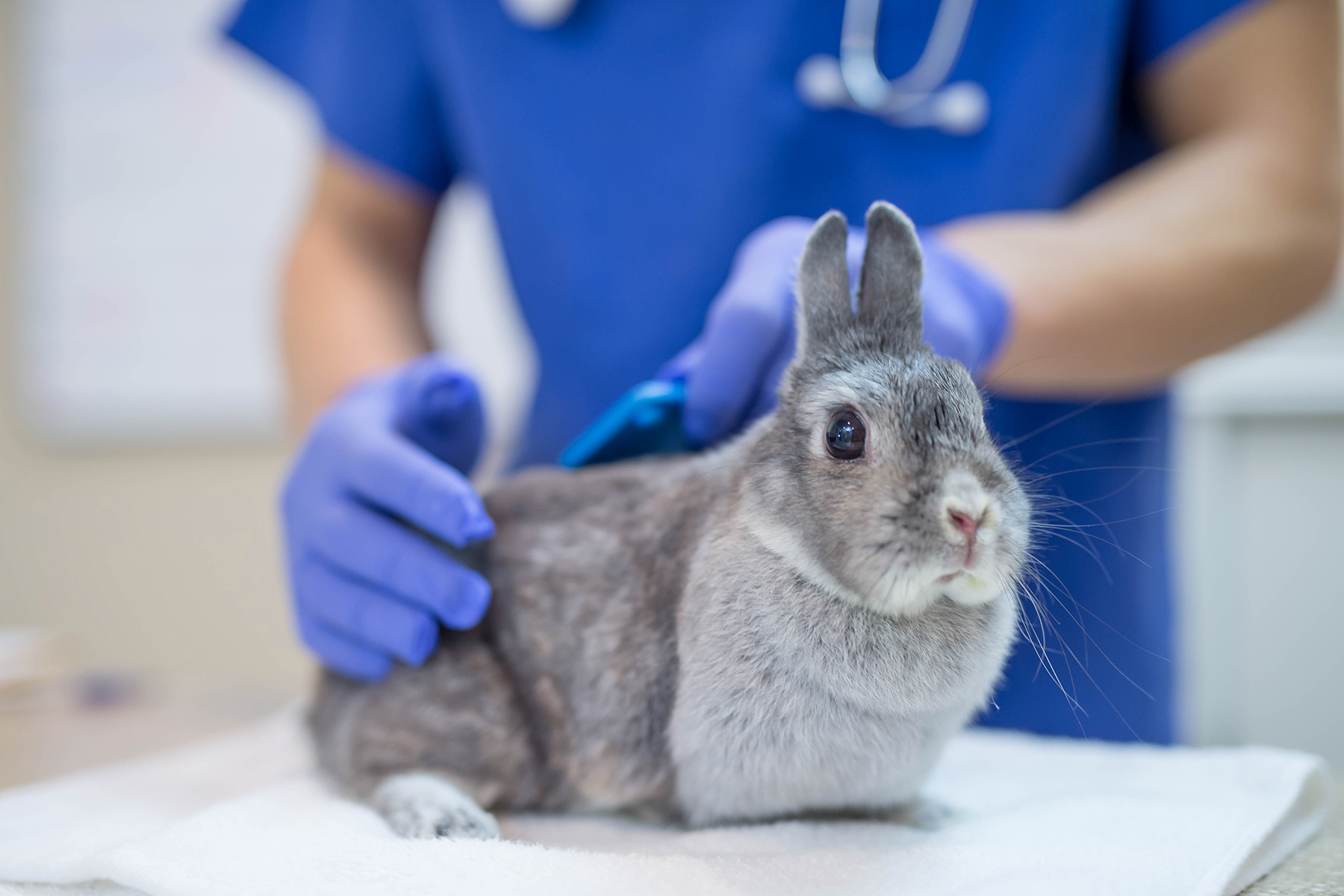
You can book vaccinations with your local vet. They will advise you on schedules and costs. Many vets offer vaccination packages where you can pay a set fee for all necessary annual jabs for your pet.
Singapore is a rabies-free country, so you won’t have to have immunize your dog or cat against rabies unless it is traveling from an at-risk country. However, other vaccinations are compulsory. These include:
- Dogs – distemper virus, adenovirus, parvovirus
- Cats – parvovirus, panleukopenia virus, calcivirus, herpesvirus
Recommended vaccines include:
- Dogs – leptospirosis, kennel cough, coronavirus, rabies
- Cats – leukemia virus, immunodeficiency virus, chlamydiosis, rabies
- Rabbits – rabbit haemorrhagic disease virus
You can check details on vaccination advice and guidelines on the SVA website.
Neutering and spaying
Neutering and spaying are essentially sterilization for male and female animals to stop them from reproducing. Although it’s not a legal requirement for pet owners, most opt for sterilization early on in the animal’s life so they don’t have to deal with unwanted litters. Sterilization can also have medical benefits and help to tame your pet.
If you want to have a pet neutered or spayed, contact your vet. Most vets provide this as a service for a fee. Commonly treated pets are dogs, cats, rabbits, and guinea pigs.
Pet shops in Singapore
Of course, if you have a pet in Singapore, you’ll need to source all the supplies for it to live a happy and comfortable life. You can find a wealth of pet stores in Singapore, including high-street retailers and online stores. Some stores also sell actual pets, while others just provide a range of supplies.
There are a few specialist stores, but shops usually sell:
- Food supplies
- Pet toys
- Bedding and housing (e.g., cages and tanks)
- Clothing and accessories (e.g. collars)
- Health products
- Hygiene and grooming products
Some stores may also offer additional services, such as grooming.
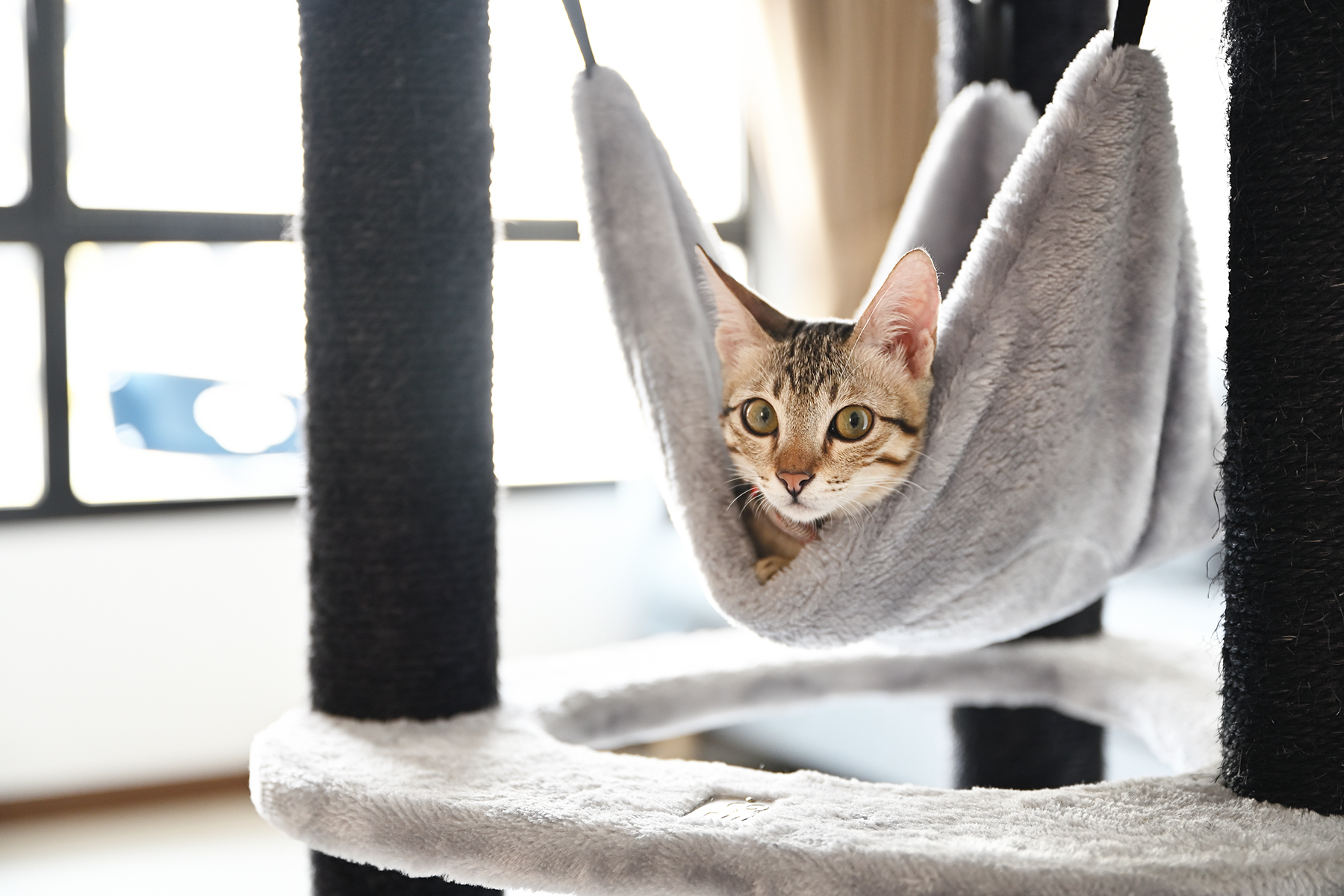
Popular pet store brands in Singapore include:
Which pet services are available in Singapore?
Beyond vets and pet stores, various other services are available for an array animals and their owners in Singapore. These include:
- Grooming and pampering services
- Pet-sitting and dog-walking
- Boarding services, such as kennels and catteries, where you can leave your pet when away from home
- Pet training
- Pet taxi services
How do you find and report lost pets?
If you are ever unfortunate enough to have your pet go missing, the first thing you should do is contact the relevant authorities. These include:
- Animal Response Center (ARC) on 1800 476 1600
- SPCA on (65) 6287 5355
You can also contact the local police. If you have a licensed dog or if your pet has been microchipped, you might be able to track the animal down via the national pet register. You can also contact local animal shelters and put up flyers or advertisements in local shops, vets, community spaces, local newspapers, and online forums.
If you find a lost or missing pet, you can take it to the ARC, the SPCA, or a local rescue center. Alternatively, you can contact the owner directly if you have seen a local ad with their contact details.
Other than microchipping your pet, there are a few things you can do to try and keep them safe and sound:
- Fasten an ID tag to your pet’s collar
- Keep smaller pets, such as hamsters and reptiles, in secure cages or tanks
- Make sure to keep garden gates and fences closed to stop dogs from escaping
- Keep dogs on a leash when walking
- Sterilize cats if you don’t want them breeding, as this can curb their wandering urges
How much does it cost to have a pet in Singapore?
Before committing to getting a pet in Singapore, you’ll need to total up the likely costs. Remember, once you have acquired your new friend, you’ll also need to factor in expenses for its food, vet bills, vaccinations, microchipping, training, insurance, and more. Make sure you can afford it in addition to your living costs in Singapore.
Singaporeans like to splash out on their pets. According to one 2019 study, the country is the 10th biggest spender per person when it comes to pets. Singapore-based personal finance community Seedly calculated the average annual costs (2022) of having a pet as follows:
- Dog: SG$7,416–18,654
- Cat: SG$4,922–15,149
- Rabbit: SG$920–2,476
- Terrapin: SG$652–960
- Hamster: SG$340–671
- Parrot: SG$292–3,987
- Fish: SG$201–502

If you import a pet to Singapore, you’ll have additional costs to consider. These include health checks and vaccinations, import permits, licenses (for dogs), quarantine fees, and freight or transport fees. You can expect to pay anything from a few hundred to a few thousand Singaporean dollars on this.
You can reduce expenditure on pets in various ways, including:
- Adopting a pet from a welfare or rescue organization rather than buying from a retail store or breeder. Some welfare organizations offer additional funding support, such as discounts on certain services or advice on lowering costs.
- Taking out pet insurance to reduce medical bills and avoid other unplanned expenditures
- Keeping medical costs low, especially later in life, by doing all you can to ensure your pet remains healthy
Selling a pet in Singapore
Although some websites allow you to list pets for sale in Singapore, strictly speaking, you need a license from the AVS to deal in animals. This applies whether you want to open a pet shop, trade as a breeder, or simply want to sell your former pet.
If you are caught selling a pet without a license in Singapore, you could end up with a sizable fine.
If you end up with a pet you can no longer look after, the best option is to take it to an animal sanctuary or rescue center. These organizations will aim to re-home the creature through adoption or fostering.
Re-homing pets
Unfortunately, not everyone who gets a pet can look after it until the end of its life. If you are unable to continue keeping a pet in Singapore for any reason, for example, if you become too ill to look after it or move into rented accommodation where pets are not allowed, you can contact an animal welfare organization that will try to find suitable new owners.
Some animal charities and rescue centers, such as the SPCA, offer re-homing services. Bear in mind that you will need to transfer ownership details on the license if you are re-homing a dog in Singapore.

Local expert
Gayatri Bhaumik
Insider tip
It’s worth reaching out to your network to see if anyone would be willing to take on the pet. Rehoming pets is super common in expat communities – especially if you have kids in international schools – they’re always a good place to start.
Useful resources
- Animal Veterinary Service (AVS) – organization that deals with most animal and pet-related matters in Singapore
- Singapore Veterinary Association (SVA) – industry body for vets in Singapore
- Society for the Prevention of Cruelty to Animals (SPCA) – one of the biggest animal welfare charities in Singapore
